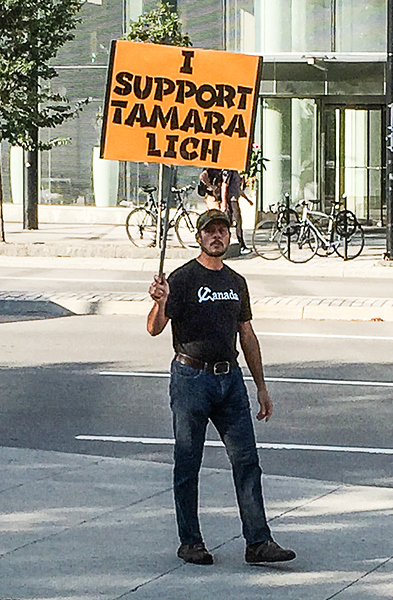
Alayne McGregor
The question of whether Tamara Lich and Chris Barber were co-conspirators in organizing the convoy occupation of Ottawa has been left open, as the judge in their trial rejected a motion from their defense teams to dismiss the conspiracy application out of hand.
On March 7, Judge Heather Perkins-McVey ruled that the Crown’s “Carter” application that Lich and Barber acted together in a “conspiracy or common design” would go ahead and be heard at the end of their trial, the normal time for such an application.
The two are both charged with mischief, obstructing police, and counselling others to commit mischief and intimidation for their roles in the protest. Barber is also charged with counselling others to disobey a court order. If the Carter application is upheld, actions by either would be applied to both in determining a verdict.
The defense had argued that the Crown had not provided sufficient evidence to meet the three tests for a Carter application.
In her ruling, the judge said that she did not need to have proof at this stage, merely a reasonable inference that there might be a conspiracy in order to allow the application to continue. She also said that, in this case, she must only consider inferences “more favourable to the Crown” just as judges would do when considering whether to commit an accused to trial.
The entire lengthy debate was not merely procedural but a preview of defense arguments, including Charter rights of free speech and free assembly. The defense argued there was only circumstantial evidence of a conspiracy.
The Crown, on the other hand, said the evidence needed to be taken in context of what was happening on the streets of Ottawa at the time, and the defendants’ own statements. The judge noted that statements from Lich and Barber used “we” and “our”, implying these were not just their own ideas but a group’s.
The trial resumes this week, with possibly a further motion from the defense and/or the start of their witnesses and arguments.
